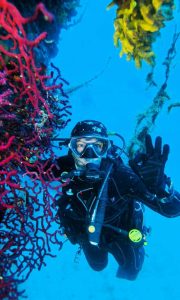Ayvalik is a town on the Aegean coast known for its winds, above all the ozone-scented westerly off the sea and the dry north wind known as the meltem which blows down from the Kaz Mountains. Among the diverse fish and seafood on sale in this picturesque town, I was surprised to see sea urchin, that creature so feared by swimmers. Almost everyone has a story of a near escape from treading on those black spiny balls, and those who have actually done so can never forget the painful hours during and following extraction of the sharp spines. So I was surprised to find that it is as delicious as it is dangerous. The edible part is confined to the five ovaries, called corals, which are regarded as a delicacy in other Mediterranean countries and in the West Indies. In Turkey, however, it is caught and eaten only around Ayvalik.
Wandering along streets lined by attractive buildings in neo-classical style in Ayvalik and the nearby Island of Cunda attached to the island by a causeway, you make your way down to the waterfront, with its restaurants, tea gardens and fishermen. I was drawn first to the fishermen, who go out at dawn and are back with their catch by the time the day has started for most holidaymakers. If you get up early enough you can watch the catch being unloaded, the nets packed away, it is being prepared. Prospective buyers wait patiently around them for their turn. I decided to join one of the fishing boats on their sea urchin gathering expeditions, and early one bright spring morning I boarded Huseyin’s fishing boat. As we sailed through the sparkling dark blue water of the Aegean, Huseyin told me that just a few fishermen in Ayvalik specialize in this. He had inherited the trade from his father, and his father from his father-in-law before him.
He explained that catching them is confined to Ayvalik, where the restaurants serve them as an appetizer. Soon we had arrived at the chosen hunting ground, and stopping the engine Hüseyin got out a long forked pole. These poles are made of bamboo or aluminum so that they are light to wield. With this he pried them off the rocks to which they clung or off the bottom where they lay half covered in the sand, tossing each into a basket. Apparently, they can remain alive for 24 hours after being caught. In Turkish, they are called denizkestanesi, meaning ‘sea chestnuts’, from the resemblance of their shells to a chestnut. The delicate and decorative shells in green, brown, purple and other colors are only revealed when the black spines are removed.
 Professional hunters collect only the largest mature specimens. On windy days the corals are affected by the waves and take several days of calm weather to regain the necessary firm texture, so the fishermen must wait for the appropriate time. In winter the corals are larger so that twenty-five to thirty sea urchins fill a jar. When the basket was full, it was time to return to harbor and clean the sea urchins in the cool of the early morning. The fishermen either do the job in their moored boats or back home in their gardens and preparing them requires as much skill as the hunting.
Professional hunters collect only the largest mature specimens. On windy days the corals are affected by the waves and take several days of calm weather to regain the necessary firm texture, so the fishermen must wait for the appropriate time. In winter the corals are larger so that twenty-five to thirty sea urchins fill a jar. When the basket was full, it was time to return to harbor and clean the sea urchins in the cool of the early morning. The fishermen either do the job in their moored boats or back home in their gardens and preparing them requires as much skill as the hunting.
A knife or special scissors are used to open the shells, and then the yellow-orange corals are removed and placed in small jars. Some reveal a milky substance inside, and these corals apparently have the finest flavor. The filled jars then go on sale beside the fish. The hunting is popular with local people, and in Paterica, one of the loveliest bays on Cunda, with the Ayisigi Monastery nestling in the green forest overlooking the bay, we saw people dressed in overalls hunting for sea urchins with forked poles in hand. The catch was placed in plastic bowls. One of these was Mehmet Bey, who was there picnicking with his family. He told us that they either eat them with the picnic or take them home, clean them and pack them in plastic bags for later consumption.
When you are in the area, wait for sundown and choose a table in one of the restaurants on Cunda. As you look out over the sea to Ayvalik and the scattered islands, you can savor papalina and the other delicious dishes of Cretan origin (most of Ayvalik’s inhabitants came originally from Crete), and a plate of sea urchin corals with a dressing of olive oil and lemon juice. As you sip your drink, the fragrant Aegean breeze will murmur songs of happiness as you enjoy a meal you will never forget.

